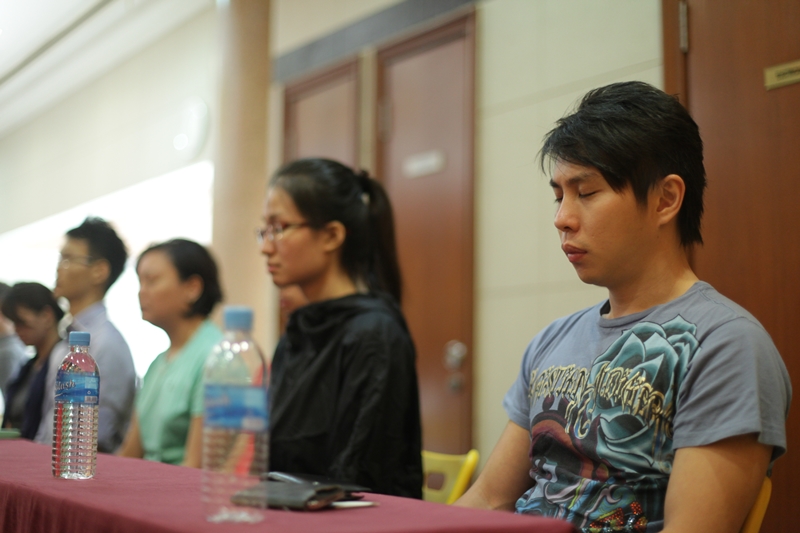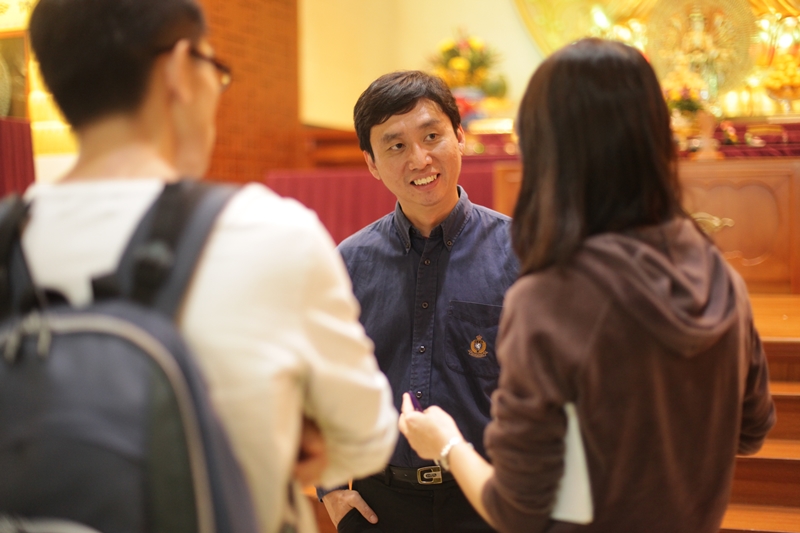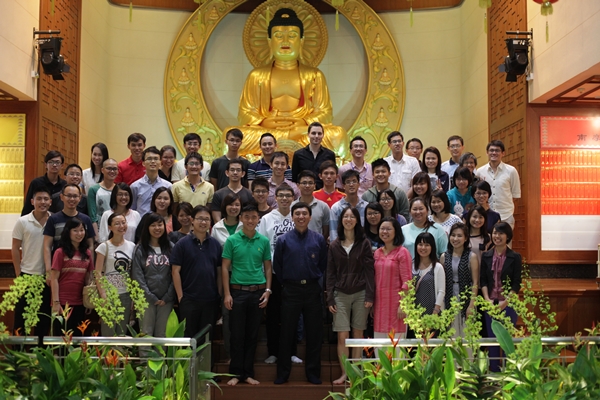By Poh Yong Hui
Six months ago, I wanted to start an exercise regime as I felt a sedentary lifestyle was not the way to go for me. I was lucky in that I needed no physical ailments to get me moving. I bought expensive running shoes and started running at my neighbourhood park – once weekly at first, then once a month, and then, before I knew it, dust started to collect on my shoes.
My lack of motivation and deep-seated aversion towards running were very similar to what I felt towards meditation. I knew meditation, like exercise, had been proven by science to bring about immense benefits to its practitioner. But I could never get myself to do it consistently; perhaps because I have not persisted enough to personally taste its benefits. I have been on 7-day retreats and meditation courses which lasted months, but yet, I did not manage to incorporate meditation into my daily life. This is why I consider myself a beginner in meditation.
In his workshop “Meditating with Joy, Ease and Relaxation” held 13 July at Vimalakirti Buddhist Centre, Mr Tan Chade Meng, Google pioneer and author of the bestselling book Search Inside Yourself, delivered exactly what was promised – immediately useful tips that make meditation easy and joyful to practice:
- Happiness is the default state of your mind, which can be likened to a shaken up snow globe. Once the “snow” or noise in your mind settles, you have the ability to access non-energetic joy, or sukha,
- Meditation is a learnable skill that brings about serenity, mindfulness and happiness, changing your quality of life. There is no way to do it wrong.
- Like how bicep curls strengthen your arm muscles, training your attention strengthens your mind.
- Meditation takes discipline at the beginning but becomes easier once you get the hang of it. (For this reason, I have decided to meditate 15 minutes every morning, which I’ve done successfully for the past three days)
- Once the effects of meditating regularly start to kick in, your quality of life will improve so much that you cannot not meditate – the practice therefore becomes self-sustaining.
- Start with ten minutes of mindful breathing each morning. If you are pressed for time, even one minute (or one breath!) in the morning would help.
- Sit in a position that allows you to be alert and relaxed, like a majestic mountain.
- When distractions arise, acknowledge it, let go, and bring your mind back to your breathing. If your mind wanders, look at it as an opportunity for growth, rather than a failure.
- Pay full attention to joy in your life – over time, even neutral experiences that we tend to take for granted become joyful – for example, freedom from pain.
Self-confidence and compassion: ingredients for a successful life
Although meditation is about letting go, it refers to the letting go of aversion and attachment, not ambition or the wish to succeed in life. Meng pointed out that self-confidence is one of the qualities of a successful person, and self-confidence arises from self-knowledge and the ability to recover, both of which can be cultivated through meditation. He advised us to find work that makes us happy, and mindfulness helps us realize what we want.
Meng also quoted Venerable Matthieu Ricard, who said that compassion is the happiest state of mind ever, more so than mindfulness. If you have difficulty showing compassion to people you dislike, his advice is matter-of-fact: “Fake it until you become it”. For example, when you enter a meeting room, silently wish for people in the room to be happy. According to Meng, your goodwill will reflect in your facial expression and body language, and people will like you. When people like you, they will want to help you succeed.
When you meet someone you dislike, remind yourself that this person is a human being who wants to be free from suffering, just like you. If you practice compassion a lot, it becomes your mental habit, and it becomes who you are.
Before we ended the workshop, Meng invited everyone to share their feedback. Like me, most of the participants found the tips offered very practical and easy to incorporate into their daily lives. With meditation made this easy, I have succeeded in sitting for at least fifteen minutes each morning ever since Meng’s workshop. Try these tips for yourself!



Leave a Reply